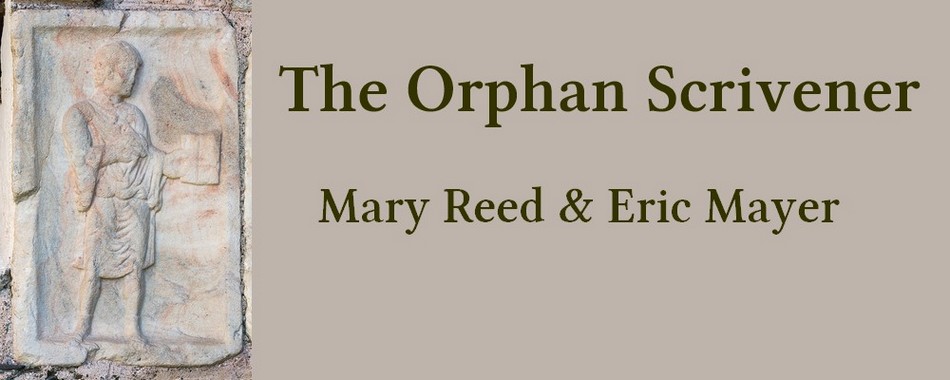MARY'S BIT or A PASSION FOR PASSION FRUIT
The presence of hummus and stuffed grape leaves in our pantry remind us an ordinary supermarket offers bounty that would have astonished John Masefield, despite his Ninevehian ship's cargo of apes and ivory and peacocks.
But it's not just savoury offerings that bring the world to our door. We both like fruit and recently purchased a tin of jack fruit. Perusing the label revealed the contents had been grown in Thailand and distributed by a company located in the Caribbean. Its taste had one of those hard to pin down, this fruit and that sort of tang.
Unlike many other comestibles, however, it did not taste like chicken.
Jack fruit was a new venture for us, though we've purchased exotica such as
mangos, guavas, papayas, fuzzy kiwi fruits, figs, and tangelos locally at one time or another. As I type there's a tropical collation of papaya and pineapple in passion fruit juice in the fridge, a favourite cold snack for another hot night.
Notice all the names beginning with p? It was the same in childhood, for much of the fruit we ate bore the same initial. Often it was tinned. There were pears, gritty on the tongue, peaches -- John Whitcomb Riley remarked the highest branches held the ripest but supermarket shelves long since did away with that distinction -- and dark, wrinkled prunes in sweet juice. When our pudding was custard-drowned prunes or plums we ended our meal by arranging their pits or stones around the edges of our plates so we could forecast the occupations of our future spouses with the aid of a rhyme chanted while counting them off: tinker, tailor, soldier, sailor, rich man, beggar man, poor man, thief.
I am here to tell you that rhyme lied.
Of course we also ate fresh fruit. Some was seasonal, at our house if not in the grander scheme of fruit cultivation. There were tissue-wrapped tangerines in the toes of Christmas stockings and usually a narrow box of dates would show up on the sideboard during the festive season. The oblong box arrived with a little lace-like frill around its inside edges, a small plastic fork with which to spear its contents, and a stern warning from our mother to mind our teeth didn't get broken on the pits.
That fate I escaped, only to lose part of a tooth to a hard sugar-shelled almond in my twenties.
For some reason we never used those dangerous date pits to prophesy the man we'd marry. Perhaps they would have provided more reliable information if we had.
Then there was the humble banana, made into sandwiches or sliced into our cornflakes, squirt-in-your-eye grapefruit, sweet, thick skinned Jaffa oranges, and an occasional pomegranate, not consumed quickly due to the time needed to winkle out its hundreds of the small red pulpy bits containing its seeds. And eating apples. I distinguish them from cooking apples because I preferred, and still do, the more acid cookers, so would hang around the kitchen waiting to grab gowks (apple cores) when apple crumbles or tarts were a-making, if I was not baking them myself. And occasionally there might be a bag of cherries, a fruit of trees that, according to A. E. Housman, wear white for Easter, or perhaps grapes, purple-black or green, like healing bruises.
Whether tinned or fresh, fruit had the great virtue of leavening meals that tended to the stodgy and were usually washed down with heavily sugared tea. They were good nourishment for labouring men, heavy on stick to the ribs fare such as fry-ups using lard or dripping to cook eggs, black pudding, sausages, chips, bread, thick rashers of bacon with rinds sporting hieroglyphs, a narrow portion of the Danish stamp impressed upon sides of bacon, or combinations of same. Not to mention Spotted Dick and similar steamed suet puddings and endless slices of bread and butter. The butter was Danish too, though any lamb consumed would invariably be from New Zealand. Snuggling up to the main course on dinner plates might be a serving of peas or green beans, carrots or cabbage, cauliflower or potatoes in many disguises, working class representatives of the vegetable world. Tripe appeared on the menu now and then, pigeon at times, and the traditional roast beef and Yorkshire pudding on Sundays.
Since those days, while I have picked grapefruit in Florida and grown melons in the Midwest, still I have yet to harvest a banana, orange, pomegranate, or many examples of exotic fruit -- except from a supermarket shelf.
AND FINALLY
Despite the heat, autumn is advancing inexorably, the season William Cullen Bryant described as the final and loveliest smile of the year. However, October 15th, though glorious colour might still tint the landscape, may prove to be a day notable for gloomy looks, as the next issue of Orphan Scrivener will fall into subscribers' in-boxes that very day.
See you then!
Mary R and Eric
who invite you to visit their home page, hanging out on the virtual washing line that is the web at http://home.earthlink.net/~maywrite/ There you'll discover the usual suspects, including more personal essays, lists of author freebies and mystery-related newsletters, Doom Cat (an interactive game written by Eric), and our growing pages of links to free e-texts of classic and Golden Age mysteries, ghost stories, and tales of the supernatural. There's also an Orphan Scrivener archive, so don't say you weren't warned! Intrepid subscribers may also wish to pop over to Eric's blog at http://www.journalscape.com/ericmayer/
